How to take hardwood cuttings – Monty Don explains why this is the ideal way to reproduce your favorite plants
November is the perfect time to take hardwood cuttings - we share the expert way to do it

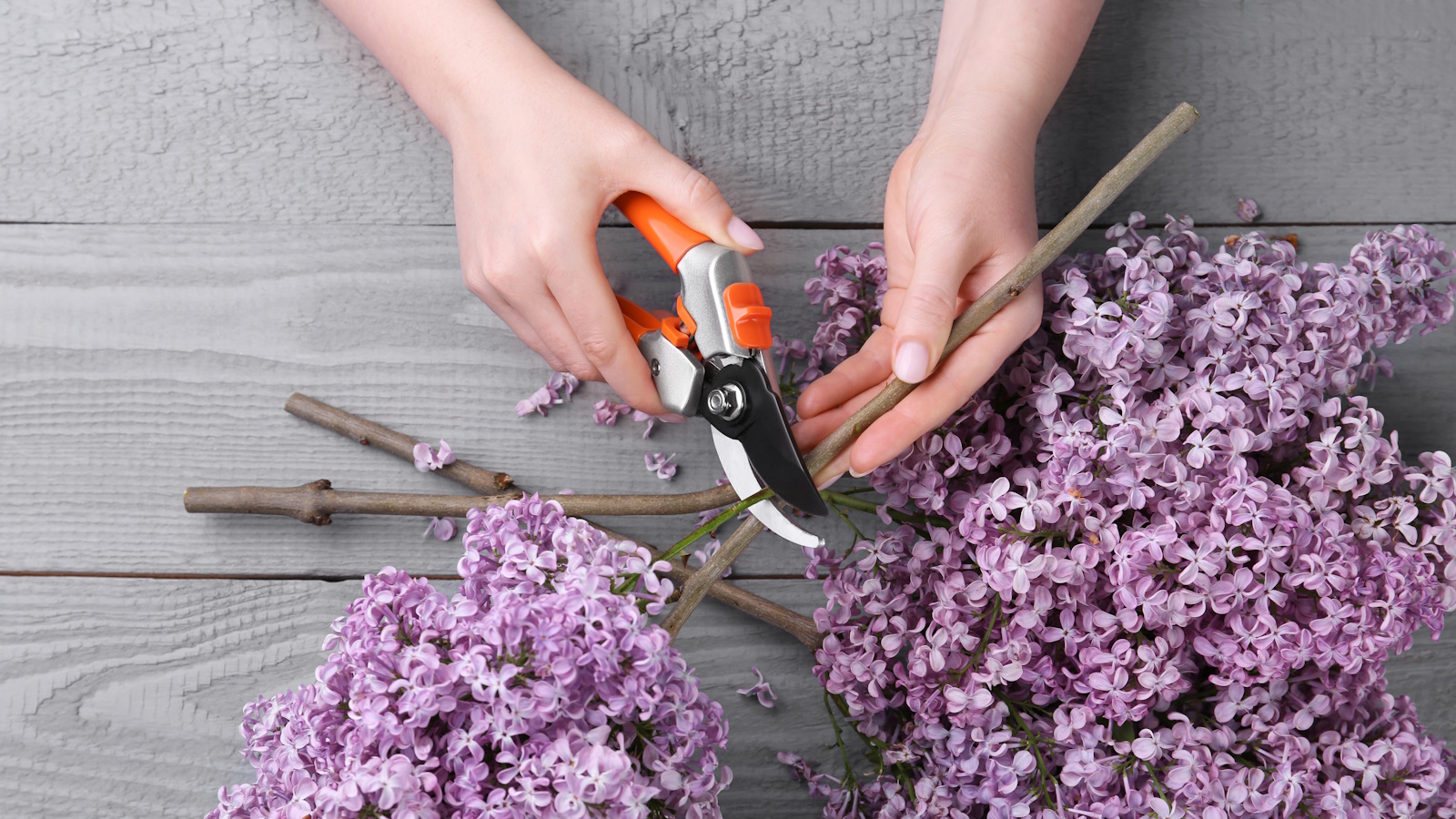
Design expertise in your inbox – from inspiring decorating ideas and beautiful celebrity homes to practical gardening advice and shopping round-ups.
You are now subscribed
Your newsletter sign-up was successful
Want to add more newsletters?

Twice a week
Homes&Gardens
The ultimate interior design resource from the world's leading experts - discover inspiring decorating ideas, color scheming know-how, garden inspiration and shopping expertise.

Once a week
In The Loop from Next In Design
Members of the Next in Design Circle will receive In the Loop, our weekly email filled with trade news, names to know and spotlight moments. Together we’re building a brighter design future.

Twice a week
Cucina
Whether you’re passionate about hosting exquisite dinners, experimenting with culinary trends, or perfecting your kitchen's design with timeless elegance and innovative functionality, this newsletter is here to inspire
The process of taking hardwood cuttings is so straightforward it almost feels too easy. But rest assured, it is a tried-and-tested way of propagating shrubs, bushes and even trees.
Any flowering shrub such as roses, viburnum, butterfly bush, lavender or hydrangeas, and even fruit bushes including blackcurrants, can be successfully propagated in this way.
‘Unlike growing plants from seed, cuttings always ‘come true’ - in other words they are exactly like the parent plant, so it is the best way of reproducing favorite plants as well as being almost totally trouble free and needing no extra equipment or shelter,’ writes Monty Don, the UK’s leading gardening broadcaster and writer, in his latest blog post.
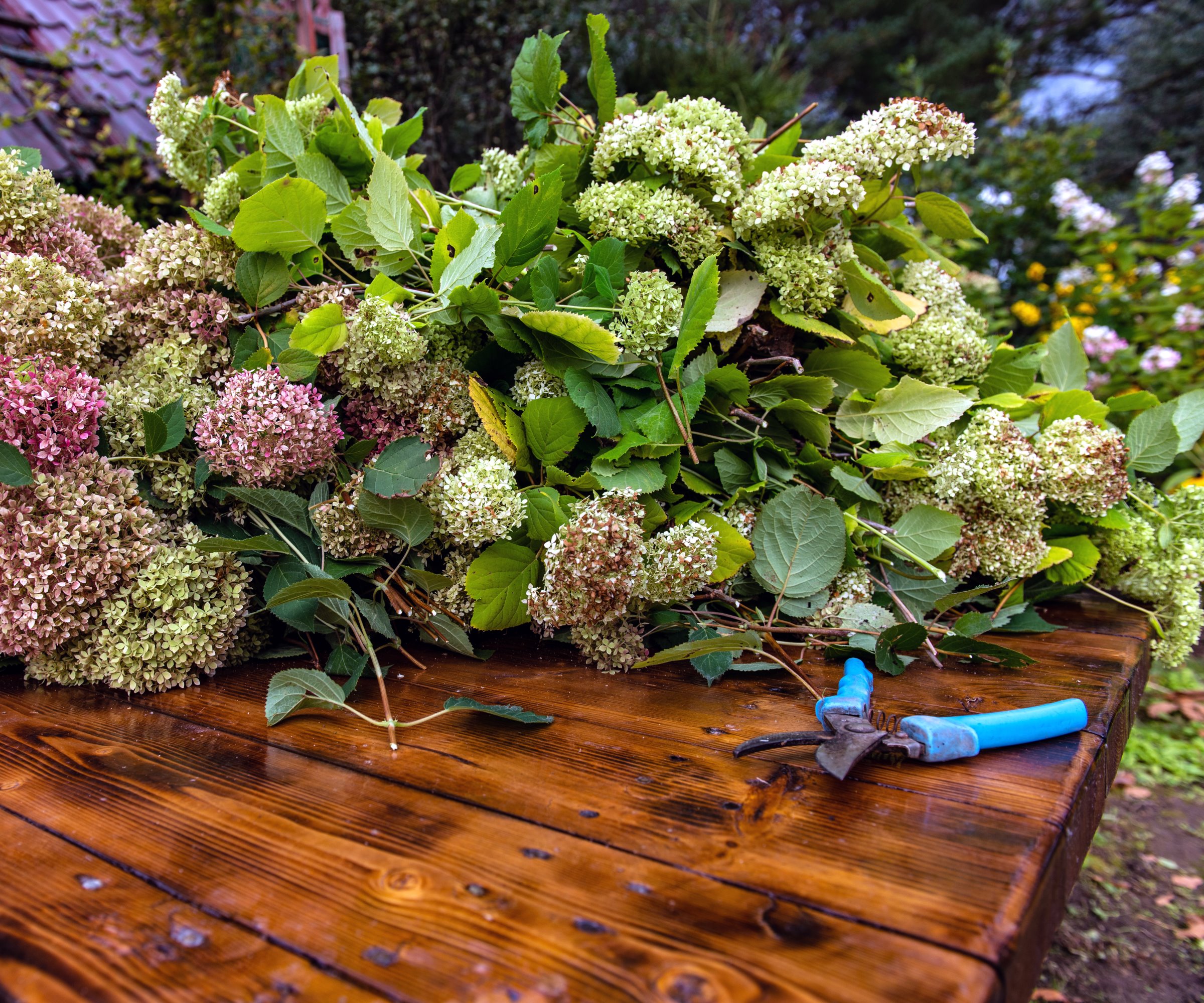
How to take hardwood cuttings in 3 simple steps
Hardwood cuttings are a simple method of getting new plants for free, says Drew Swainston, expert gardener and content editor for Homes & Gardens. 'For this very reason, it was the first type of cutting I was taught to do as part of my horticultural training.
'Over my years as a professional gardener I used this technique as a tried-and-trusted way to propagate new cornus, willows, butterfly bushes and soft fruit bushes, including blackcurrants and jostaberries,' adds Drew.
Follow these expert steps to create exact replicas of your favorite garden plants for free.
1. Select and cut your stems
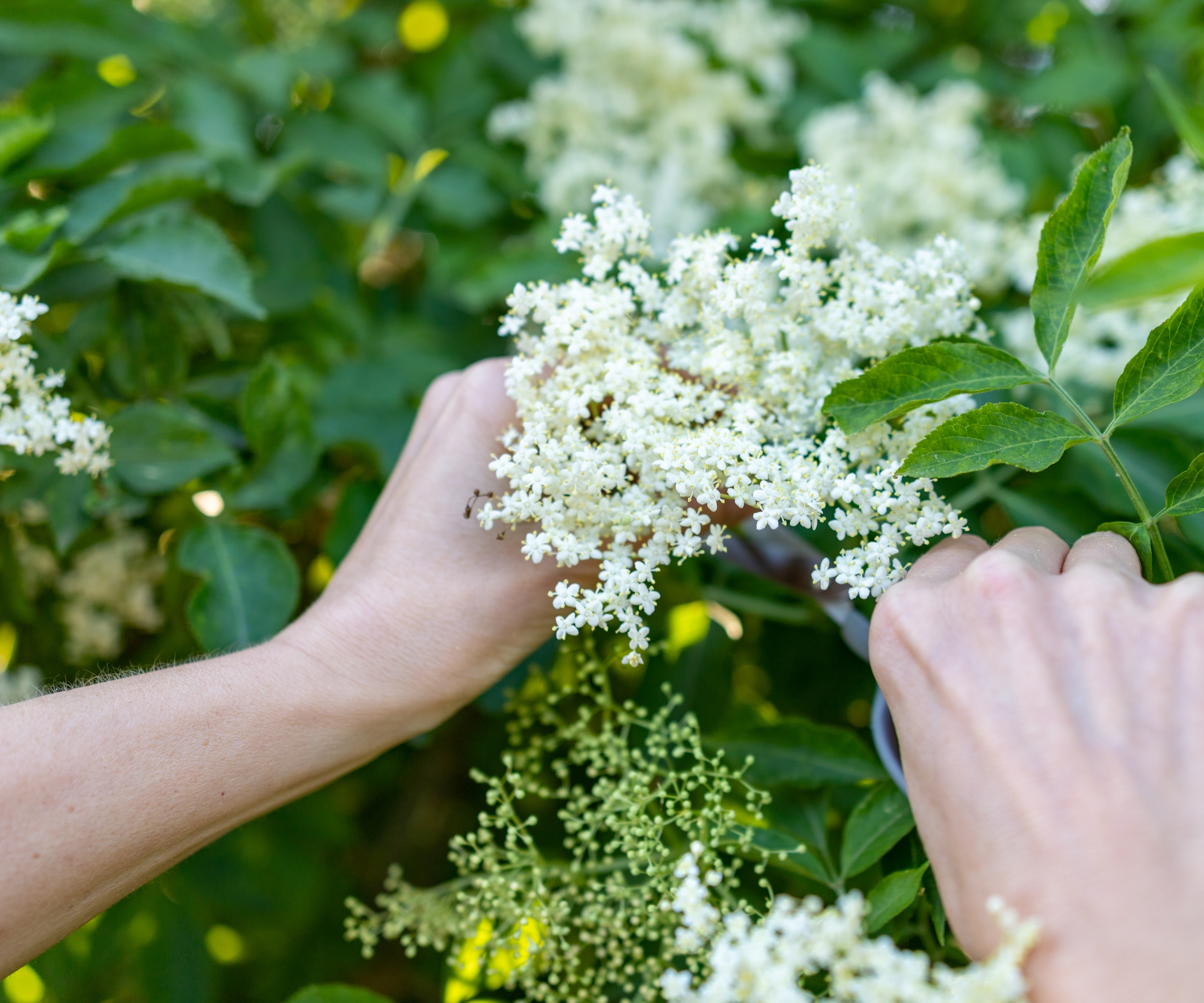
When taking any cuttings, always use clean and sharp pruning tools. Using dirty or blunt tools would be a pruning mistake. It can be quick and simple to sharpen pruning shears, using a tool such as this Pocket Blade Sharpener for Garden Tools available at Amazon.
Design expertise in your inbox – from inspiring decorating ideas and beautiful celebrity homes to practical gardening advice and shopping round-ups.
For successful propagation, you need to select this year’s growth. Choose a straight stem and cut a length between 12 and 24 inches long. It should be about the same thickness as a pencil. Then divide that into two or three equal lengths.
Top tip: Monty Don says to make a straight cut across the bottom and to cut at an angle at the top, so it is easier to remember which way up to plant your cutting. It also provides an angle for water to run off. You can find out more of Monty’s tips in his book, The Complete Gardener, available on Amazon.
2. Prepare your stems
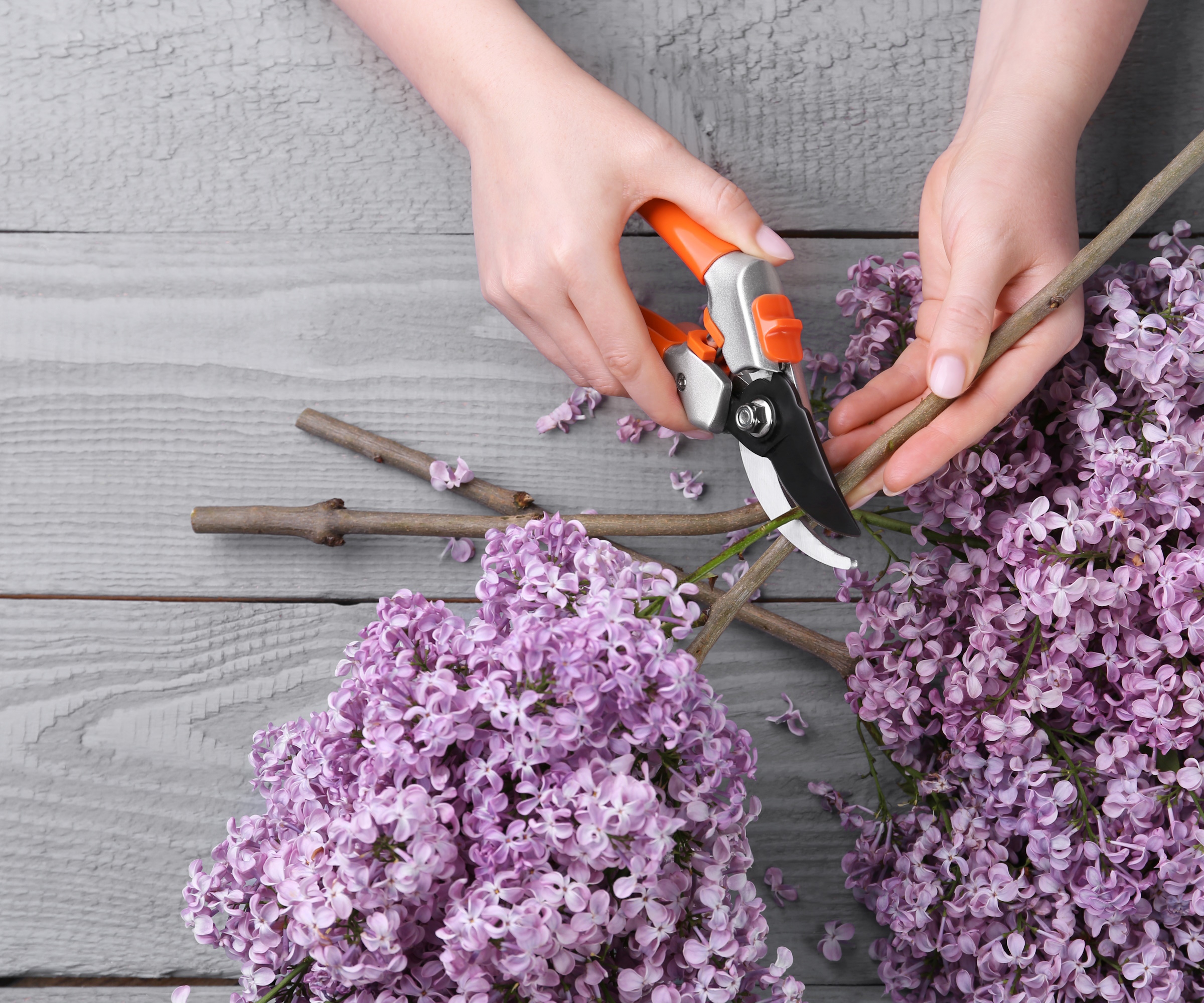
Before planting your hardwood cuttings, it’s important to strip any remaining leaves so that you are left with bare, straight stems.
This is to ensure that all the energy within the cutting goes into growing its new roots, rather than its leaves and shoots above ground.
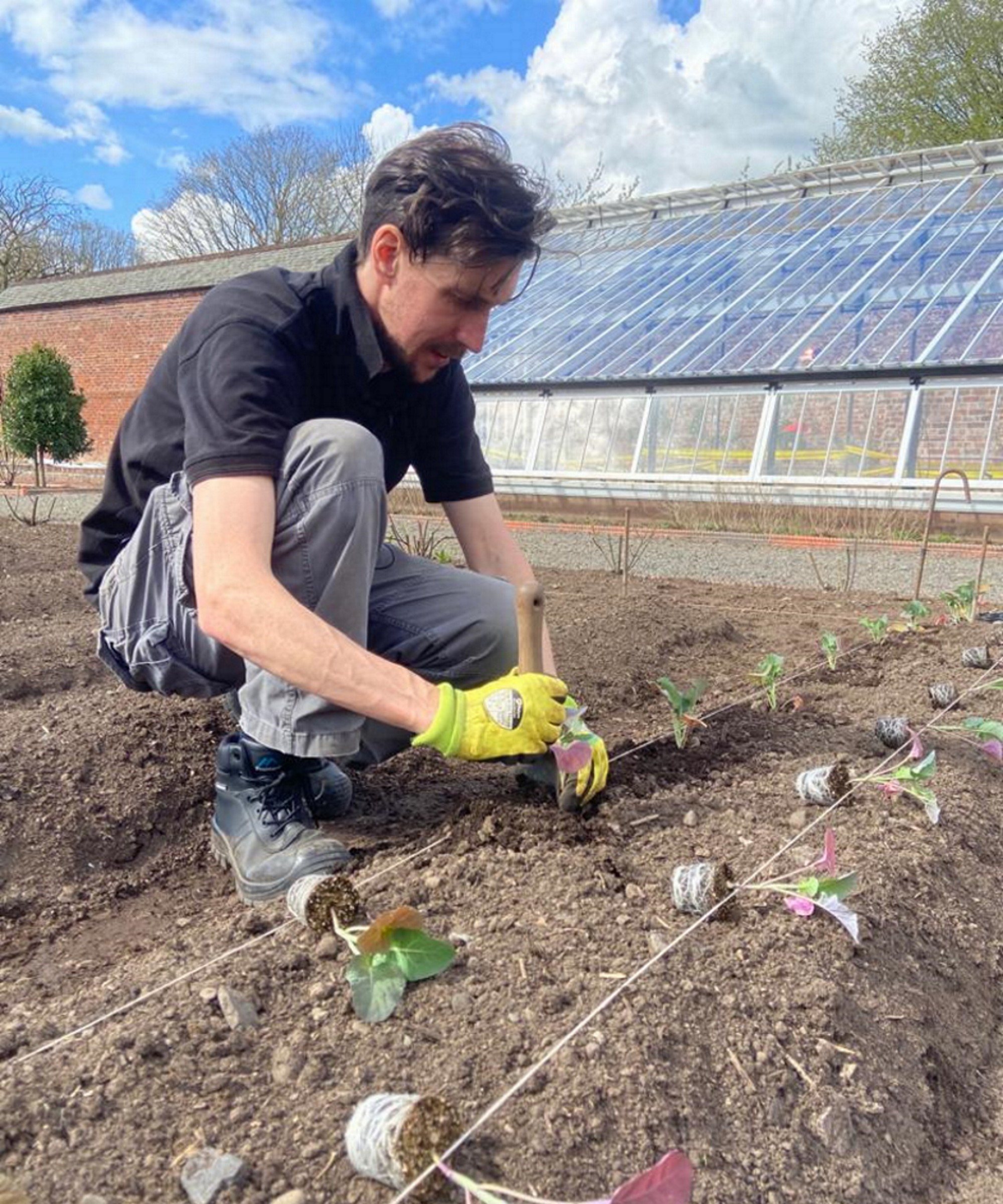
Drew qualified as a journalist before studying for a horticulture qualification, after which he worked as a professional gardener for several years, specializing in kitchen gardening. He's now bringing his expertise and passion to Homes & Gardens as a member of our team.
3. Plant your stems
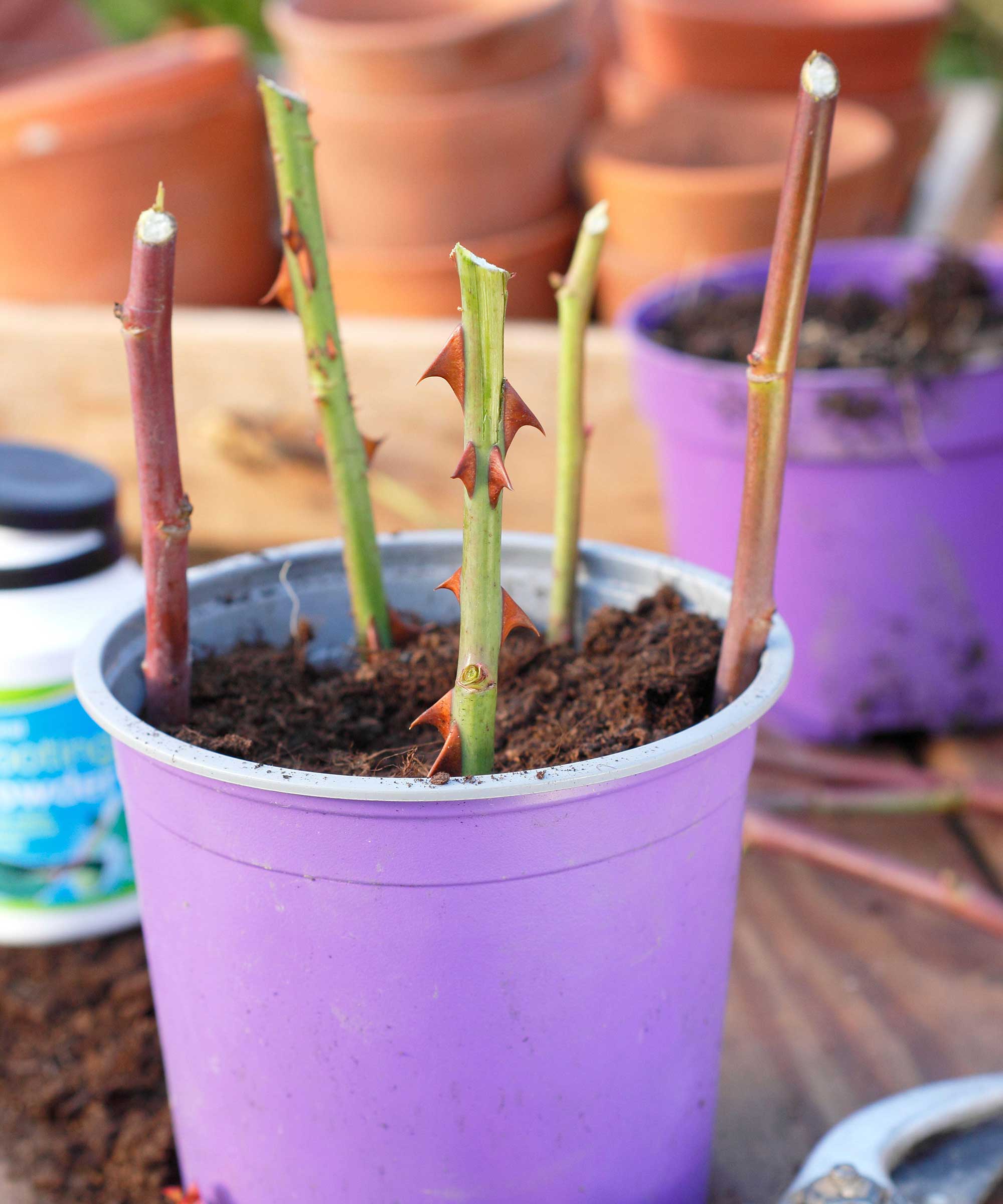
Your cuttings can be planted out into containers or directly into a bed if you prefer. With either method, ensuring good drainage is key.
If choosing to plant in a container, use a fairly deep pot filled with gritty compost, and place the cutting so that one third is above the level of the soil. Depending on the size of your chosen containers, you might be able to fit four cuttings to one pot.
If planting directly into a bed, dig a narrow trench, then place your cuttings into it and backfill it with gritty compost and sand. Water well, and continue to give them a light watering once a week to maintain moisture levels.
Drew Swainston says he has inserted cuttings into the ground outdoors to root and also placed cuttings in containers. 'I found placing the cuttings in a good multi-purpose compost and putting them in a protected space - I used a cold frame - was a reliable way to grow them.'
Once they are planted, you can leave them alone until next fall, when they will have grown strong, solid roots and will be ready to plant out.
Top Tip: As Drew explains, hardwood cuttings need to be in pots for at least a year before planting out in the garden, and as a result it can be easy to forget about them. 'Always remember to check the pots and keep them well-watered, especially during periods of hot weather where the soil can dry out very quickly,' he says.
FAQs
How long will it take for my hardwood cuttings to root
It will take up to a year for your hardwood cuttings to grow and develop strong roots. They will be fine provided they are planted in gritty compost with good drainage. If planted in pots, they can be placed in a cold frame or greenhouse over winter.
Hardwood cuttings may take a while until they have developed strong roots, but will be well worth the wait and forward planning. Why not experiment with the best hardwood cuttings to take in fall?
There are even more tips on how to plan a garden in Monty Don’s most recent book, The Gardening Book, which you can pre-order on Amazon.

Rachel is a gardening editor, floral designer, flower grower and gardener. Her journalism career began on Country Living magazine, sparking a love of container gardening and wild planting. After several years as editor of floral art magazine The Flower Arranger, Rachel became a floral designer and stylist, before joining Homes & Gardens in 2023. She writes and presents the brand's weekly gardening and floristry social series Petals & Roots. An expert in cut flowers, she is particularly interested in sustainable gardening methods and growing flowers and herbs for wellbeing. Last summer, she was invited to Singapore to learn about the nation state's ambitious plan to create a city in nature, discovering a world of tropical planting and visionary urban horticulture.